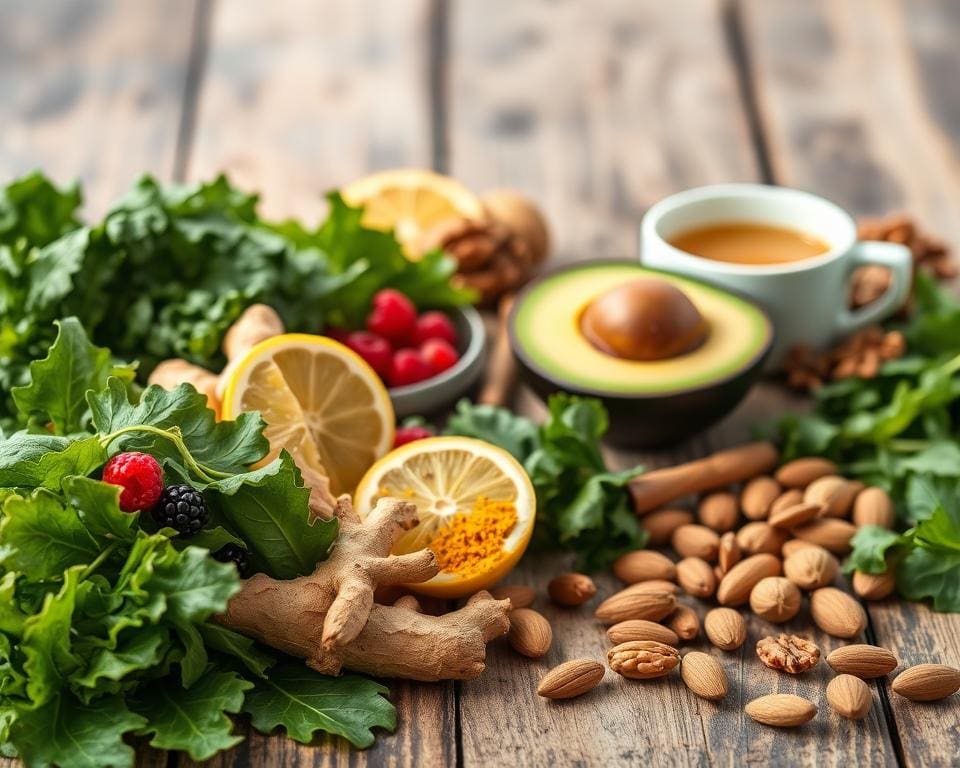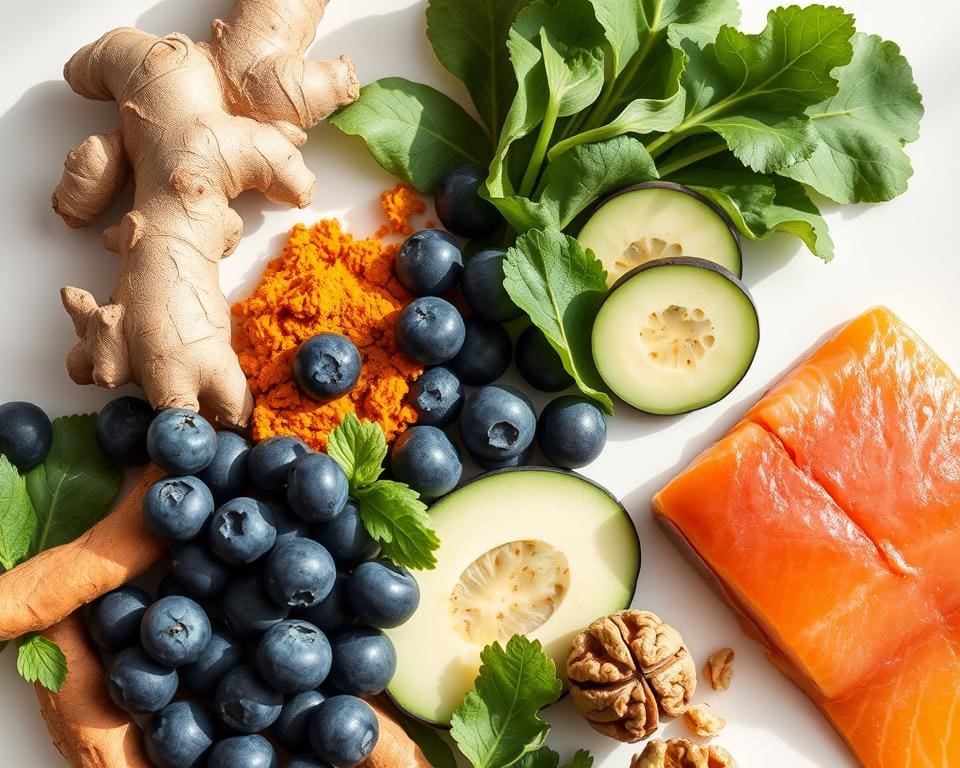Inflammation is a natural response from the body, crucial for healing, yet it can become a persistent condition that leads to discomfort and illness. Understanding what foods are good for inflammation is essential for anyone seeking to improve their health through diet. The relationship between diet and inflammation is profound, and an anti-inflammatory diet can be a powerful tool in mitigating chronic inflammation. By exploring foods that reduce inflammation, individuals can make informed choices that foster well-being and alleviate discomfort.
Understanding Inflammation and Its Effects
Inflammation is a critical biological response that occurs when the body encounters injury or infection. Its signs—redness, swelling, heat, and pain—serve as indicators that the immune system is actively working to heal and protect the body. While this acute response is essential for recovery, the focus should also be on understanding chronic inflammation and its broader implications for overall health.
What is Inflammation?
At its core, inflammation is a defence mechanism initiated by the immune system. When tissues are damaged or pathogens invade, the body releases various substances to facilitate healing. This natural process ensures that any harmful agents are neutralised, reinforcing the body’s resilience. Nevertheless, chronic inflammation can arise when this response persists beyond its necessary duration.
The Role of Chronic Inflammation in Health
Chronic inflammation parallels a spectrum of health issues, including heart disease, diabetes, and autoimmune disorders. This prolonged state not only alters immune function but can also interfere with metabolic processes. Adopting a chronic inflammation diet that focuses on anti-inflammatory foods becomes imperative for managing these conditions. Understanding what foods are good for inflammation can significantly improve overall health by reducing the burden of chronic inflammation.

What Foods Are Good For Inflammation
Understanding what foods are good for inflammation can empower anyone to take charge of their health. Incorporating natural anti-inflammatory foods into daily meals supports the body in fighting inflammation. A range of key nutrients can play a crucial role in this process.
Key Nutrients That Combat Inflammation
Several essential nutrients exhibit anti-inflammatory properties. These include:
- Omega-3 fatty acids, found in fatty fish such as salmon and mackerel
- Antioxidants present in colourful fruits and vegetables like berries, spinach, and carrots
- Vitamins such as Vitamin C and Vitamin E, which aid in reducing oxidative stress
These inflammation fighting foods not only help mitigate chronic inflammation but also elevate overall health when consumed regularly.
How to Incorporate Anti-Inflammatory Foods into Your Diet
Incorporating these natural anti-inflammatory foods doesn’t have to be overwhelming. Simple adjustments can yield significant benefits:
- Swap refined grains for whole grains like brown rice or quinoa.
- Add a variety of colourful vegetables to each meal.
- Include a handful of nuts or seeds to snacks or salads.
Making these modest changes effectively enhances the anti-inflammatory benefits found in everyday meals.
Top Anti-Inflammatory Foods to Include
Incorporating specific foods into your eating habits can significantly support an anti-inflammatory diet. A variety of fruits, fish, and greens are key players in reducing inflammation within the body. Here are some of the most effective inflammation fighting foods to consider.
Berries: Nature’s Little Powerhouses
Berries, such as blueberries, strawberries, and blackberries, emerge as nature’s little powerhouses in the quest against inflammation. Rich in antioxidants, particularly anthocyanins, these fruits have demonstrated their ability to lower markers of inflammation. Including a handful of berries as a snack or adding them to your morning yoghurt can offer a tasty way to consume these beneficial foods that reduce inflammation.
Fatty Fish: Omega-3s for Fighting Inflammation
Fatty fish like salmon, mackerel, and sardines are abundant in omega-3 fatty acids, which play a vital role in combating inflammation. These inflammation fighting foods not only contribute to heart health but also help lower the body’s inflammatory processes. Regular inclusion of fatty fish in meals can pave the way for a more balanced anti-inflammatory diet, providing delicious and nutritious options for your lunch or dinner.
Leafy Greens: Nutrient-Rich Ingredients
Leafy greens, including spinach, kale, and Swiss chard, should be a staple in any anti-inflammatory diet. Packed with vitamins, minerals, and antioxidants, these foods significantly contribute to lowering inflammation levels. Incorporating leafy greens into salads, smoothies, or cooked dishes can elevate your meals while ensuring your body receives the essential nutrients it needs.
Foods to Avoid for Inflammation Management
When managing chronic inflammation, mindful eating plays a crucial role. Certain foods have been identified as inflammatory foods that can contribute significantly to increased inflammation levels. Recognising these items is essential for those seeking to follow a chronic inflammation diet that promotes healing and well-being.
Common Inflammatory Foods to Limit
Many people may not realise how everyday choices can impact inflammation. Some common inflammatory foods include:
- Refined carbohydrates such as white bread and pastries
- Fried foods that contain unhealthy fats
- Processed meats like sausages and hot dogs
Limiting these items can yield significant benefits and lead to improved overall health. Prioritising fresh, whole foods aids in cultivating a balanced diet.
The Impact of Sugars and Processed Carbohydrates
Sugars, particularly high fructose corn syrup found in many sweets and beverages, can exacerbate inflammation. Processed carbohydrates can also create spikes in blood sugar levels, triggering an inflammatory response. A shift towards foods that reduce inflammation can greatly enhance your chronic inflammation diet. Mindful selection of wholesome options enables one to thrive and savour daily meals.
Benefits of an Anti-Inflammatory Diet
Embracing an anti-inflammatory diet offers numerous health advantages that extend well beyond mere dietary adjustments. This approach assists in mitigating chronic inflammation, a contributor to various serious health conditions. By focusing on inflammation fighting foods, individuals can enjoy both immediate and long-term benefits.
Reducing Risk of Chronic Diseases
A chronic inflammation diet has been associated with a notable reduction in the risk of chronic diseases, such as cardiovascular issues and certain types of cancers. By incorporating inflammation fighting foods into daily meals, the body’s inflammatory response can be modulated, ultimately promoting better health outcomes. Evidence suggests that by doing so, individuals can protect themselves against conditions that may otherwise affect their quality of life.
Improving Overall Well-being and Energy Levels
Adhering to an anti-inflammatory diet is linked to enhanced overall well-being and heightened energy levels. Many people who have adopted this dietary pattern report feeling more energised and mentally sharp. This improvement in cognitive function can be attributed to the nutrient-rich ingredients that support brain health. A focus on whole foods, including fruits, vegetables, whole grains, and lean proteins, contributes significantly to sustaining energy and promoting a vibrant lifestyle.
Creating Your Inflammation Fighting Meals
Embracing a diet rich in inflammation fighting foods can be a delightful experience filled with vibrant flavours and nourishing ingredients. It is easier than many believe to prepare meals that showcase natural anti-inflammatory foods while ensuring taste and satisfaction. Below are some creative recipes designed to inspire you.
Sample Recipes for an Anti-Inflammatory Diet
Consider these enticing meal suggestions:
- Berry Smoothie Bowl: Blend together a handful of berries, a banana, and almond milk, then top with chia seeds and sliced almonds for a nutritious breakfast.
- Salmon Quinoa Salad: Flake cooked salmon over quinoa, adding diced cucumber, cherry tomatoes, and a drizzle of olive oil with lemon juice for a refreshing lunch.
- Spicy Chickpea Stew: Sauté garlic, ginger, and onion, then add chickpeas, diced tomatoes, and spinach for a hearty dinner packed with natural anti-inflammatory foods.
Meal Planning Tips for Easy Incorporation
Incorporating these foods that reduce inflammation into your daily routine can be seamless with some strategic planning.
- Prepare a weekly menu featuring a variety of inflammation fighting foods to keep meals interesting.
- Batch cook grains such as brown rice or quinoa, and store them in portions to save time during busy days.
- Keep a well-stocked pantry of spices like turmeric and ginger, which can elevate the health benefits of your meals.
With a little creativity and organisation, enjoying delicious meals that support your health becomes a rewarding and effortless endeavour.
Incorporating Lifestyle Changes Alongside Diet
While adopting an anti-inflammatory diet is pivotal in combatting chronic inflammation, it’s essential to recognise that lifestyle factors significantly contribute to overall health and well-being. Regular exercise, for instance, can reduce inflammation by improving circulation and lowering stress levels. Engaging in physical activities like walking, swimming, or yoga not only incorporates movement into your daily routine but also complements your inflammation fighting foods.
In addition to physical activity, prioritising sleep quality plays a crucial role in managing inflammation. Aim for seven to nine hours of restorative sleep each night to support your body’s recovery processes. Coupled with a chronic inflammation diet, a well-regulated sleep pattern can enhance your immune function and reduce inflammatory responses. Alongside this, managing stress through mindfulness practices, such as meditation or deep breathing, can further bolster your efforts in establishing a healthier lifestyle.
Ultimately, embracing a holistic approach involves integrating these lifestyle changes with your dietary choices. By consciously nurturing your body with inflammation fighting foods while promoting an active and balanced lifestyle, you can create a powerful synergy that not only combats inflammation but elevates your overall health. The journey toward improved well-being is within reach, inviting you to thrive through mindful eating and living.









